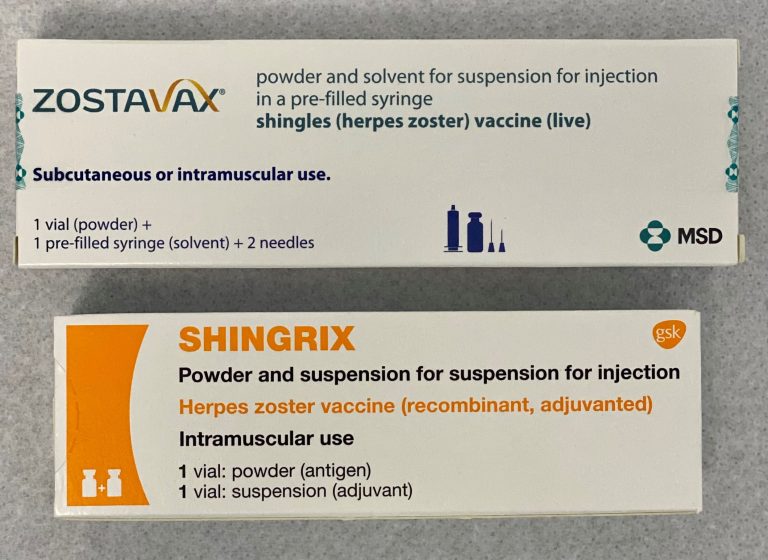GSK plc has nnounced that Japan’s Ministry of Health, Labour and Welfare (MHLW) has approved Nucala (mepolizumab), a monoclonal antibody that targets interleukin-5 (IL-5), for the treatment of chronic rhinosinusitis with nasal polyps (CRSwNP) in adult patients, limited to those who are inadequately controlled with standard treatment.
· Nucala is the first and only biologic in Japan with a four-weekly dosing schedule for this condition
· Chronic rhinosinusitis with nasal polyps (CRSwNP) exerts significant physical and emotional burden on patients with surgery often the only option
· This is the third indication for Nucala in Japan for an IL-5 mediated condition
Kaivan Khavandi, SVP, Global Head of Respiratory/Immunology R&D, at GSK said: “The chronic and debilitating impact that chronic rhinosinusitis with nasal polyps can have on those affected is often underestimated. This additional indication for Nucala in Japan could provide patients with an alternative treatment option to surgery or systemic steroids.”
CRSwNP is a chronic condition that affects 1% to 4% of the general population, of whom 40% have uncontrolled disease.1,2 People with CRSwNP experience symptoms such as nasal obstruction, loss of smell, facial pressure, sleep disturbance and nasal discharge, which can significantly affect their emotional and physical well-being.3 In Japan, an estimated 2 million people suffer from chronic rhinosinusitis, of which about 200,000 are subject to surgery due to nasal polyps.4
CRSwNP is caused by chronic inflammation of the nasal lining that can cause soft tissue growth, known as nasal polyps, that develop in the sinuses and nasal cavity.3 Over 80% of patients with CRSwNP have type 2 inflammation, which is associated with more severe disease and nasal polyp recurrence.5-8 IL-5 is a key cytokine driving this type 2 inflammation and is present at high levels in nasal polyp tissue.3,5-8 Although surgery can be effective at removing polyps, the underlying type 2 inflammation means they have a tendency to regrow.7,8
The approval is based on results of the phase III MERIT trial, which studied the efficacy and safety of mepolizumab over a 52-week period in a population of Japanese, Chinese and Russian patients with inadequately controlled CRSwNP, supported by data from the global phase III SYNAPSE study, which explored the effect of mepolizumab vs. placebo in more than 400 patients with CRSwNP.3,9
Mepolizumab is approved in Japan as a treatment for bronchial asthma in children aged 6 years or older and in adults with refractory asthma whose symptoms are inadequately controlled with standard treatment, and also for the treatment of adult patients with eosinophilic granulomatosis with polyangiitis (EGPA) inadequately responding to the standard treatment.
References
1. Chen S, et al. Systematic literature review of the epidemiology and clinical burden of chronic rhinosinusitis with nasal polyposis. Curr Med Res Opin. 2020;36(11):1897-1911.
2. van der Veen J, et al. Real-life study showing uncontrolled rhinosinusitis after sinus surgery in a tertiary referral centre. Allergy. 2017;72(2):282-290.
3. Han JK, et al. Mepolizumab for chronic rhinosinusitis with nasal polyps (SYNAPSE): a randomised, double-blind, placebo-controlled, phase 3 trial. The Lancet Respiratory Medicine. 2021;9(10):1141-1153.
4. JESREC Study about refractory eosinophilic sinusitis available at https://jesrec.jp/general/disease.html. Last accessed September 2023.
5. Kato A, et al. Endotypes of chronic rhinosinusitis: Relationships to disease phenotypes, pathogenesis, clinical findings, and treatment approaches. Allergy. 2022;77(3):812-826.
6. Bachert C, et al. EUFOREA expert board meeting on uncontrolled severe chronic rhinosinusitis with nasal polyps (CRSwNP) and biologics: Definitions and management. J Allergy Clin Immunol. 2021;147(1):29-36.
7. De Corso E, et al. How to manage recurrences after surgery in CRSwNP patients in the biologic era: a narrative review. Acta Otorhinolaryngol Ital. 2023;43(Suppl. 1):S3-S13.
8. Chen S, et al. Systematic literature review of the epidemiology and clinical burden of chronic rhinosinusitis with nasal polyposis. Curr Med Res Opin. 2020;36(11):1897-1911.
9. Fujieda S, et al. Mepolizumab in CRSwNP/ECRS and NP: The Phase III randomised MERIT trial in Japan, China and Russia. Rhinology (2024)
GSK continues to build on decades of pioneering work to deliver more ambitious treatment goals, develop the next generation standard of care, and redefine the future of respiratory medicine for hundreds of millions of people with respiratory diseases. With an industry-leading respiratory portfolio and pipeline of vaccines, targeted biologics and inhaled medicines, we are focused on improving outcomes and the lives of people living with all types of asthma and COPD along with less understood refractory chronic cough or rarer conditions like systemic sclerosis with interstitial lung disease. GSK is harnessing the latest science and technology with the aim to modify underlying disease dysfunction and prevent disease progression.








































